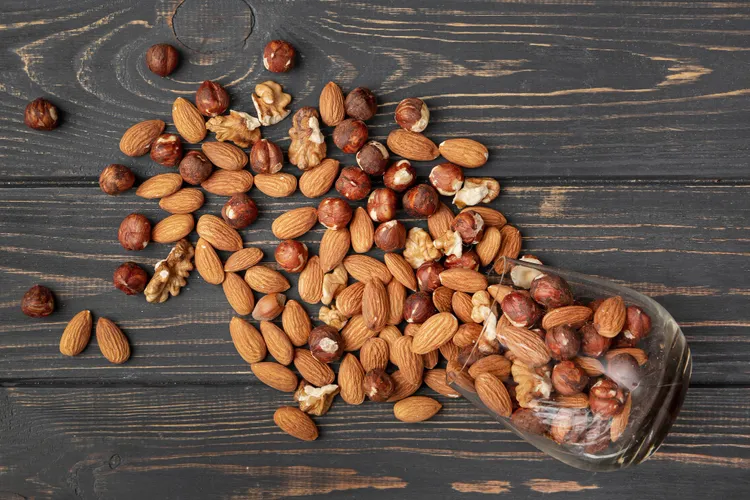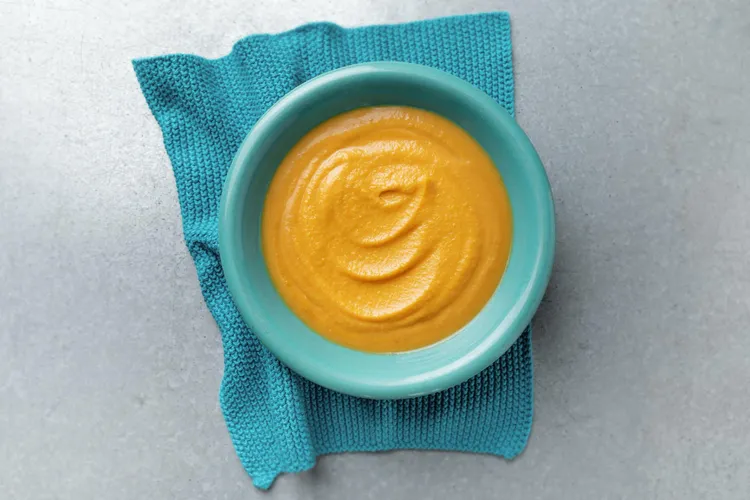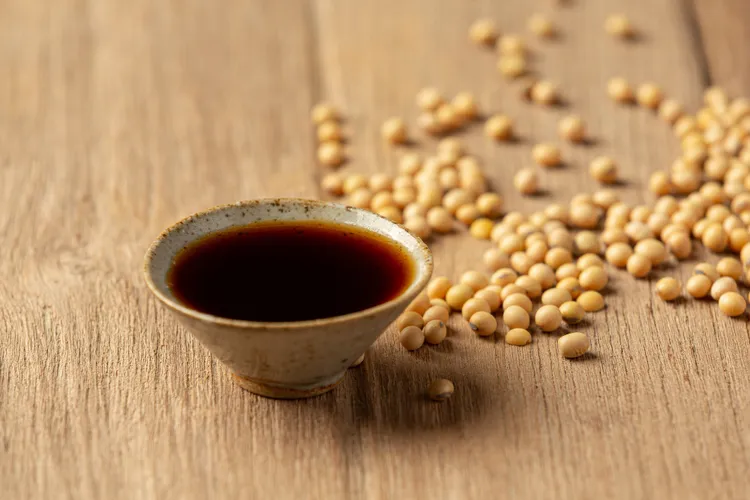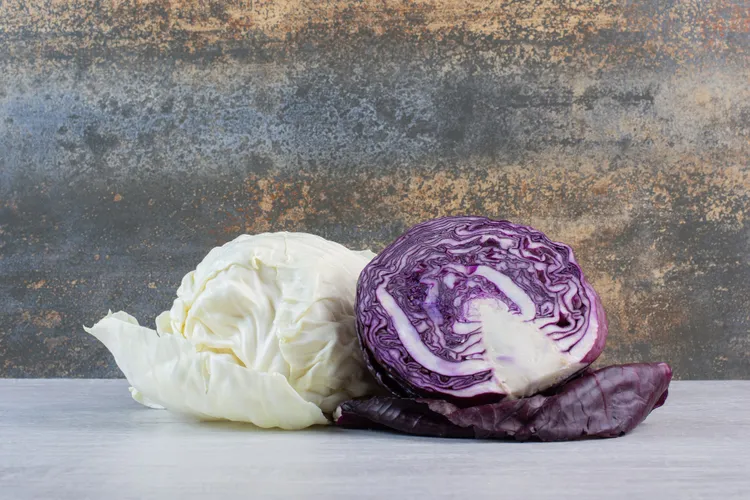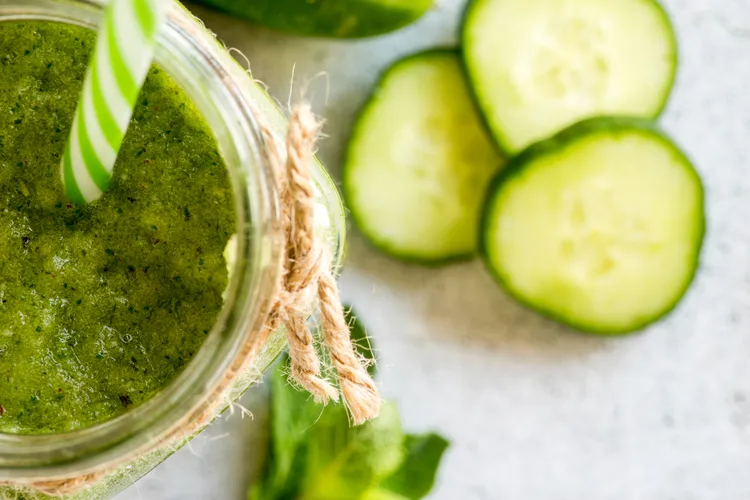10 Reasons to Eat More Protein: Power Up Your Body and Mind
Protein is often hailed as the building block of life, and for good reason. As one of the three macronutrients - alongside carbohydrates and fats - protein plays a vital role in nearly every function of your body, from building muscles to supporting immunity. While many associate protein with bodybuilders or athletes, its benefits extend far beyond the gym, making it essential for everyone, regardless of age, lifestyle, or fitness goals. Increasing your protein intake can transform your health, energy, and overall well-being in remarkable ways.
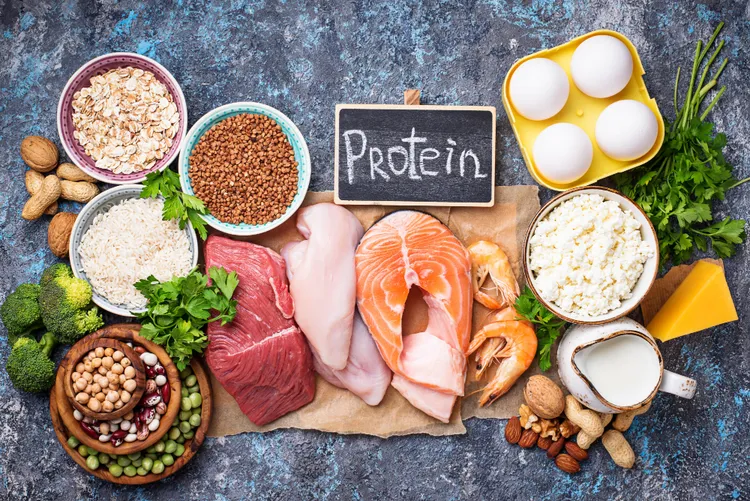
Let's explore 10 science-backed reasons to eat more protein, diving into how it supports your body and mind. We’ll also provide practical tips for incorporating protein into your diet, discuss optimal intake, and highlight the best sources to maximize benefits. Whether you’re looking to lose weight, boost energy, or simply live healthier, this guide will convince you to make protein a priority. Let’s dive in and discover why protein deserves a starring role on your plate!
Why Protein Matters
Protein is made up of amino acids, the building blocks your body uses to create and repair tissues, produce enzymes and hormones, and maintain overall function. Unlike fats and carbs, which can be stored in large amounts, your body doesn’t have a significant protein reserve, so regular intake is crucial. The Recommended Dietary Allowance (RDA) for protein is 0.8 grams per kilogram of body weight (or 0.36 grams per pound) for adults, but emerging research suggests higher amounts - 1.2 to 2.2 grams per kg (0.55 to 1 gram per pound) - may be optimal for health, fitness, and longevity.
With that in mind, let’s explore the 10 compelling reasons to ramp up your protein intake and how it can transform your life.
10 Reasons to Eat More Protein
- Supports Muscle Growth and Repair
Protein is the cornerstone of muscle health, providing the amino acids needed to build and repair muscle fibers. Whether you’re lifting weights, running, or simply staying active, physical activity causes micro-tears in muscles that require protein to heal and grow stronger.
- Why It Matters: Higher protein intake enhances muscle protein synthesis, leading to increased muscle mass and strength. This is crucial for athletes, fitness enthusiasts, and even those recovering from injury.
- Science Says: A 2018 meta-analysis in the British Journal of Sports Medicine found that consuming 1.6–2.2 grams of protein per kg body weight daily maximizes muscle growth in resistance-trained individuals.
- Who Benefits: Gym-goers, runners, and anyone looking to maintain muscle as they age (to combat sarcopenia, age-related muscle loss).
- Example: Eating grilled chicken or a protein shake after a workout provides amino acids like leucine to kickstart muscle repair.
- Promotes Weight Loss and Fat Burning
Protein is a powerful ally for weight loss, as it boosts satiety, preserves muscle mass, and increases calorie burn during digestion. A high-protein diet can help you eat less while maintaining energy and losing fat, not muscle.
- Why It Matters: Protein has a higher thermic effect of food (TEF) (20–30% of calories burned during digestion vs. 5–10% for carbs and fats), meaning you burn more calories processing it. It also reduces hunger hormones like ghrelin and increases satiety hormones like peptide YY.
- Science Says: A 2015 study in The American Journal of Clinical Nutrition showed that a high-protein diet (30% of calories from protein) led to greater fat loss and less muscle loss compared to a standard-protein diet during weight loss.
- Who Benefits: Those aiming to lose weight, improve body composition, or maintain weight loss.
- Example: Swapping a sugary breakfast cereal for eggs and Greek yogurt keeps you fuller longer, reducing snacking.
- Enhances Satiety and Reduces Cravings
Feeling hungry all the time can derail healthy eating habits, but protein is the most satiating macronutrient, helping you stay full and satisfied between meals. This can curb overeating and reduce cravings for unhealthy snacks.
- Why It Matters: Protein slows digestion and stabilizes blood sugar, preventing energy crashes that trigger cravings for sugary or processed foods.
- Science Says: A 2016 study in Nutrition Journal found that high-protein snacks (e.g., yogurt or beef jerky) reduced appetite and late-night snacking compared to high-carb or high-fat snacks.
- Who Benefits: Anyone struggling with hunger, emotional eating, or late-night cravings.
- Example: A handful of almonds or a hard-boiled egg as a snack can tide you over until dinner.
- Boosts Metabolism
Protein not only burns calories during digestion but also supports muscle mass, which increases your basal metabolic rate (BMR) - the calories you burn at rest. More muscle means a higher metabolism, even when you’re not exercising.
- Why It Matters: Muscle tissue burns about 6–10 calories per pound daily, compared to 2–3 calories for fat. A higher protein intake preserves or builds muscle, keeping your metabolism revved.
- Science Says: A 2020 study in The Journal of Nutrition found that higher protein intake (1.3 g/kg vs. 0.8 g/kg) increased BMR and fat oxidation in overweight adults.
- Who Benefits: Those looking to maintain or boost metabolism, especially during weight loss or aging.
- Example: Pair strength training with protein-rich meals like salmon and quinoa to maximize muscle and metabolism.
- Supports Bone Health
Contrary to the myth that high protein harms bones, adequate protein intake strengthens bones by improving calcium absorption and supporting bone-building cells. This is especially important as you age, when bone density declines.
- Why It Matters: Protein makes up about 50% of bone volume and is essential for bone remodeling. It also supports muscle strength, reducing fall risk in older adults.
- Science Says: A 2017 review in The American Journal of Clinical Nutrition found that higher protein intake (above the RDA) was associated with better bone density and lower fracture risk in older adults.
- Who Benefits: Older adults, women at risk of osteoporosis, and anyone seeking long-term bone health.
- Example: Include dairy (Greek yogurt, cheese) or fortified plant-based proteins (tofu) for protein and calcium.
- Enhances Immune Function
Protein is critical for a robust immune system, as it provides amino acids to produce antibodies, immune cells, and enzymes that fight infections. A protein-deficient diet can weaken immunity, making you more susceptible to illness.
- Why It Matters: Amino acids like glutamine and arginine support immune cell function, while zinc and selenium (often found in protein-rich foods) enhance immune responses.
- Science Says: A 2013 study in The Journal of Infectious Diseases showed that protein malnutrition impairs immune function, increasing infection risk.
- Who Benefits: Everyone, especially during cold and flu season or when recovering from illness.
- Example: Eat lean meats like turkey or plant-based proteins like lentils, which provide zinc alongside protein.
- Improves Mood and Brain Function
Protein contains amino acids like tyrosine and tryptophan, which are precursors to neurotransmitters like dopamine and serotonin. These chemicals regulate mood, focus, and cognitive function, helping you stay sharp and balanced.
- Why It Matters: Adequate protein prevents neurotransmitter imbalances that can lead to low mood, brain fog, or anxiety. It also stabilizes blood sugar, avoiding mood swings from carb-heavy meals.
- Science Says: A 2016 study in Nutrients found that higher protein intake improved cognitive performance and mood in healthy adults.
- Who Benefits: Students, professionals, and anyone managing stress or mental health.
- Example: Start your day with eggs and avocado on whole-grain toast for tyrosine and healthy fats.
- Aids in Recovery and Injury Healing
Protein is essential for repairing tissues damaged by exercise, injury, or surgery. Amino acids like leucine accelerate wound healing and reduce muscle soreness, helping you recover faster.
- Why It Matters: Protein supports collagen production (for skin and connective tissues) and muscle repair, speeding recovery and reducing downtime.
- Science Says: A 2014 study in The Journal of Sports Science & Medicine found that 20–40 grams of protein post-exercise reduced muscle damage and soreness.
- Who Benefits: Athletes, post-surgery patients, or anyone recovering from physical stress.
- Example: Sip a protein shake with whey or pea protein after a tough workout or injury rehab session.
- Promotes Healthy Aging
As you age, muscle mass and strength decline (sarcopenia), increasing frailty and reducing quality of life. Higher protein intake counteracts this by preserving muscle and supporting mobility.
- Why It Matters: Older adults need more protein (1.2–2.0 g/kg body weight) to maintain muscle, as protein synthesis efficiency decreases with age.
- Science Says: A 2018 study in The Journals of Gerontology showed that older adults consuming 1.2–1.6 g/kg protein daily had better muscle mass and physical function.
- Who Benefits: Adults over 50, retirees, or anyone aiming for active aging.
- Example: Add Greek yogurt or cottage cheese to breakfast or snacks for easy protein boosts.
- Supports Hormone Balance
Protein provides amino acids for hormone production, including insulin, growth hormone, and thyroid hormones, which regulate metabolism, growth, and energy. A balanced protein intake supports endocrine health.
- Why It Matters: Stable hormone levels prevent issues like fatigue, weight gain, or mood swings. Protein also helps regulate insulin, reducing blood sugar spikes.
- Science Says: A 2017 study in Diabetes Care found that high-protein meals improved insulin sensitivity in people with type 2 diabetes.
- Who Benefits: Those with hormonal imbalances, diabetes, or metabolic concerns.
- Example: Pair protein-rich lentils with vegetables for a meal that supports insulin balance.
Best Protein Sources
To reap the benefits, choose high-quality, nutrient-dense protein sources. Here’s a mix of animal and plant-based options:
Animal-Based Proteins
- Chicken Breast: 26 g protein/100 g, lean and versatile.
- Salmon: 25 g protein/100 g, rich in omega-3s for heart health.
- Eggs: 6 g protein/large egg, complete protein with choline.
- Greek Yogurt (0% fat): 10 g protein/100 g, probiotic-rich for gut health.
- Lean Beef: 26 g protein/100 g, high in iron and zinc.
- Cottage Cheese: 11 g protein/100 g, low-calorie and calcium-rich.
Plant-Based Proteins
- Lentils: 9 g protein/100 g cooked, high in fiber and iron.
- Chickpeas: 7 g protein/100 g cooked, great for hummus or salads.
- Tofu: 10 g protein/100 g, versatile and calcium-rich.
- Quinoa: 4 g protein/100 g cooked, complete protein with magnesium.
- Hemp Seeds: 10 g protein/30 g, rich in omega-3s.
- Tempeh: 19 g protein/100 g, fermented for gut health.
Tip: Combine plant proteins (e.g., rice and beans) to ensure all essential amino acids.
Practical Tips to Eat More Protein
Incorporating more protein into your diet doesn’t have to be complicated. Here are 10 practical tips to boost your intake:
- Start Your Day with Protein
- Why: Kickstarts muscle repair and keeps you full.
- How: Swap cereal for eggs, Greek yogurt, or a protein smoothie.
- Example: Scramble two eggs with spinach and top with avocado.
- Snack on Protein-Rich Foods
- Why: Protein snacks curb hunger and prevent overeating.
- How: Keep boiled eggs, jerky, or edamame handy.
- Example: Pair a handful of almonds with a string cheese.
- Add Protein to Every Meal
- Why: Even distribution maximizes muscle synthesis.
- How: Include chicken, tofu, or beans in lunches and dinners.
- Example: Toss chickpeas into a quinoa salad for lunch.
- Use Protein Powders
- Why: Convenient for busy days or post-workout.
- How: Blend whey, pea, or hemp protein into shakes or oatmeal.
- Example: Mix vanilla protein powder with almond milk and berries.
- Swap Carbs for Protein
- Why: Increases protein without adding calories.
- How: Replace some pasta with lentils or bread with cottage cheese.
- Example: Use zucchini noodles with grilled chicken instead of spaghetti.
- Choose High-Protein Versions
- Why: Small swaps boost intake effortlessly.
- How: Opt for Greek yogurt over regular or high-protein milk.
- Example: Buy protein-enriched bread or pasta for sandwiches.
- Prep Protein in Bulk
- Why: Saves time and ensures availability.
- How: Cook chicken, lentils, or eggs weekly and store in portions.
- Example: Grill a batch of salmon fillets for quick meals.
- Combine Plant and Animal Proteins
- Why: Diversifies nutrients and supports sustainability.
- How: Pair tofu with eggs or beans with cheese.
- Example: Make a burrito bowl with black beans and grilled chicken.
- Read Labels for Hidden Protein
- Why: Some foods (e.g., nuts, seeds) pack unexpected protein.
- How: Check nutrition labels for protein content in snacks or sides.
- Example: Choose peanut butter with 7 g protein per 2 tbsp.
- Experiment with Recipes
- Why: Keeps protein intake exciting and sustainable.
- How: Try new dishes like protein pancakes or lentil soups.
- Example: Bake protein muffins with whey powder and oats.
Potential Risks of Excessive Protein
While protein is beneficial, overconsumption (above 2.2 g/kg for prolonged periods) may pose risks:
- Kidney Strain: In those with pre-existing kidney issues, high protein can stress kidneys. Healthy kidneys handle it well.
- Nutrient Imbalance: Overemphasizing protein may crowd out carbs or fats, leading to deficiencies.
- Digestive Issues: Excess protein without fiber can cause constipation.
- Solution: Stick to 1.2–2.0 g/kg, balance with fiber-rich carbs and healthy fats, and consult a doctor if you have kidney concerns.
Protein is a nutritional powerhouse, offering benefits that go far beyond muscle-building. From supporting weight loss and metabolism to enhancing immunity and brain function, eating more protein can transform your health and quality of life. By prioritizing high-quality sources like chicken, fish, eggs, lentils, and tofu, and spreading intake across meals, you can harness protein’s potential to fuel your body and mind.
Start small - add a protein-rich snack or swap a carb-heavy meal for a balanced one. Over time, these changes will build a stronger, healthier you. Protein isn’t just for bodybuilders; it’s for anyone who wants to thrive.




